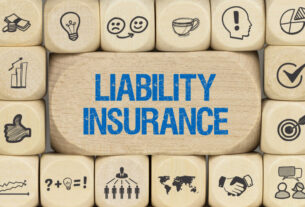Recreational vehicles (RVs) offer a unique blend of travel freedom and home-like comfort, making them a popular choice for adventurers and road trippers. However, just like any other vehicle, RVs require adequate insurance to protect against potential risks and uncertainties. This guide will help you understand the essentials of RV insurance, ensuring you make informed decisions for your travel home on wheels.
What is RV Insurance?
RV insurance is a specialized type of coverage designed to protect your recreational vehicle. It encompasses various forms of coverage similar to both auto and homeowner’s insurance, considering that an RV serves as both a vehicle and a dwelling. Whether you own a motorhome, camper van, travel trailer, or fifth wheel, RV insurance is crucial for safeguarding your investment and ensuring peace of mind on the road.
Types of RV Insurance Coverage
- Liability Coverage: This is mandatory in most states and covers bodily injury and property damage you may cause to others in an accident. It also includes legal fees if you are sued.
- Collision Coverage: Pays for damages to your RV resulting from a collision with another vehicle or object, regardless of fault.
- Comprehensive Coverage: Covers non-collision-related damages to your RV, such as theft, vandalism, fire, or natural disasters.
- Uninsured/Underinsured Motorist Coverage: Protects you if you’re involved in an accident with a driver who doesn’t have sufficient insurance.
- Personal Injury Protection (PIP): Covers medical expenses for you and your passengers, regardless of fault, and may also cover lost wages and other related costs.
- Vacation Liability: Provides liability coverage when you are using your RV as a temporary vacation residence.
- Full-Time RV Insurance: Similar to homeowner’s insurance, this coverage is for those who live in their RV full-time. It includes additional liability and personal property protection.
- Roadside Assistance: Offers services such as towing, tire changes, fuel delivery, and locksmith services if your RV breaks down.
- Emergency Expense Coverage: Covers costs for temporary housing and transportation if your RV becomes uninhabitable due to a covered loss.
- Personal Belongings Coverage: Protects personal items inside your RV, such as clothing, electronics, and kitchen appliances.
Factors Influencing RV Insurance Costs
Several factors affect the cost of RV insurance, including:
- Type and Class of RV: Motorhomes (Class A, B, C) typically cost more to insure than towable RVs (travel trailers, fifth wheels).
- Usage: Full-time RVers usually pay higher premiums compared to occasional users.
- Location: Where you park and use your RV affects the risk of theft, accidents, and natural disasters.
- Driving History: A clean driving record can lead to lower premiums.
- Deductibles and Coverage Limits: Higher deductibles can lower your premium, but they increase your out-of-pocket costs in case of a claim.
- Discounts: Many insurers offer discounts for safe drivers, bundling policies, paying in full, or having anti-theft devices.
Tips for Choosing the Right RV Insurance
- Assess Your Needs: Determine how often you use your RV and the level of coverage you need.
- Compare Quotes: Obtain multiple quotes from different insurers to find the best rate.
- Check Insurer’s Reputation: Look for customer reviews and ratings to ensure the insurer is reliable and provides good customer service.
- Understand the Policy: Read the fine print to know what is covered and what isn’t. Pay attention to exclusions and limitations.
- Ask About Discounts: Inquire about available discounts to reduce your premium.
Conclusion
RV insurance is essential for protecting your investment and ensuring a worry-free travel experience. By understanding the types of coverage available and the factors that influence insurance costs, you can choose a policy that best suits your needs. Whether you are a weekend warrior or a full-time RVer, having the right insurance coverage will provide peace of mind as you embark on your next adventure.



